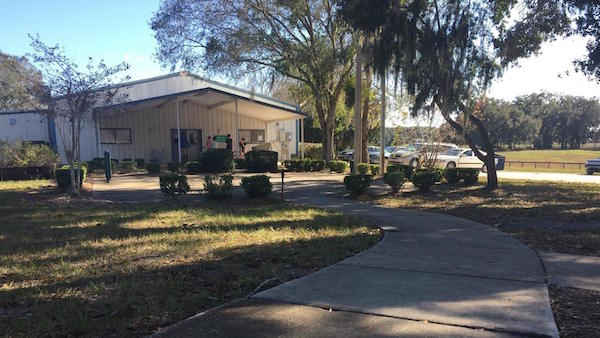Until recently, the East Lake County Library in Sorrento, Florida had one card-carrying patron who read far more than any other: Chuck Finley, who borrowed a whopping 2,361 books over the course of nine months in 2016. Though this amount of reading would be beyond impressive, sadly it wasn’t really accomplished. The truth is that Chuck Finley doesn’t exist.
Librarian George Dore was the manager of the Florida library branch that included East Lake County, until it was revealed that he created Finley in order to influence the system’s circulation data, with the help of library assistant Scott Amey. According to the Orlando Sentinel, Dore was suspended from his job, and Lake County officials requested a full audit of all the libraries in its system.

Source: Orlando Sentinel
It sounds like something out of a novel itself: super-reader Chuck Finley was created to save books. When titles are checked out at libraries, that data is recorded and used to determine which books should stay on the shelves. If a book isn’t borrowed enough, eventually it will be culled from a library’s collection to make room for titles more likely to be chosen by visitors. Dore and Amey made Finley check out more than 2,000 books that were in danger of being discarded, increasing the East Lake County Library’s circulation by 3.9% in doing so. It was the impossible speed at which Finley was checking out and returning books that led to the discovery of the scheme.
According to Quartz, “[Dore] says he was just trying to save the library time and money, as books that are not borrowed are deemed irrelevant by the software that the local library system uses to track circulation and taken off the shelves. Then they are often repurchased again later.”

Source: Pexels
While some may think the librarians’ creation relatively harmless, authorities in Florida are looking at the incident as a possible case of creating a false public record, and since circulation is often linked to public funding for libraries, there are legal complications arising that Dore and Amey perhaps did not anticipate.
Dore also reportedly told investigators that the creation of fake readers to influence circulation data is actually a common practice. Despite the legal backlash, for bookworms, this is a rather attractive idea: perhaps, in libraries all over the country, librarians are rebelling against the system, using this secret method to keep beloved books on the shelves.
YouTube Channel: TEDx Talks
Featured image via Pexels
h/t Quartz



